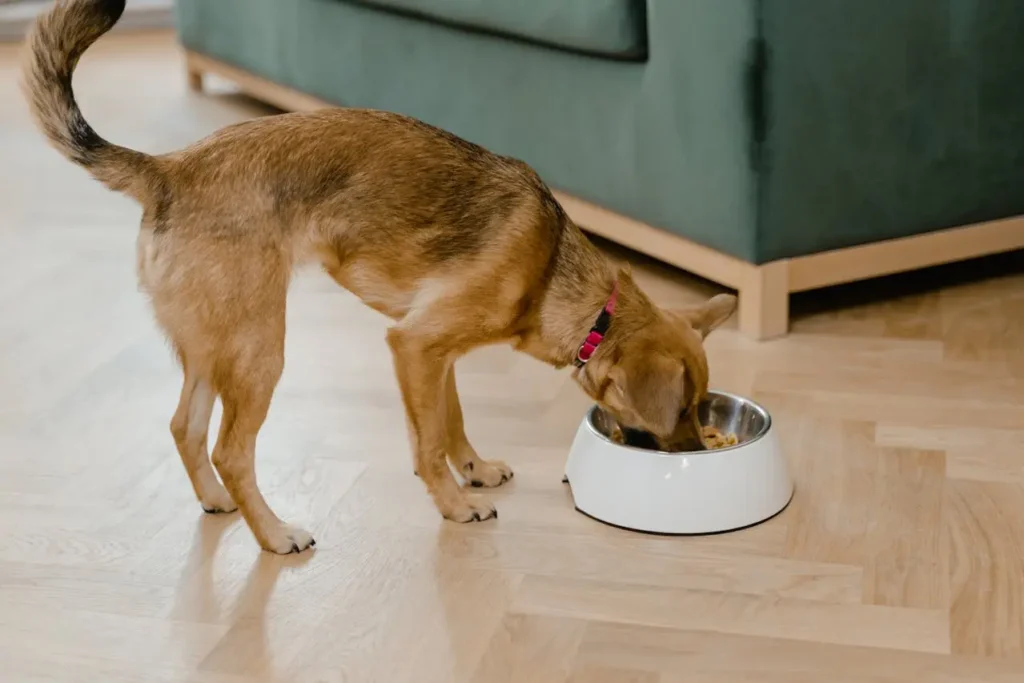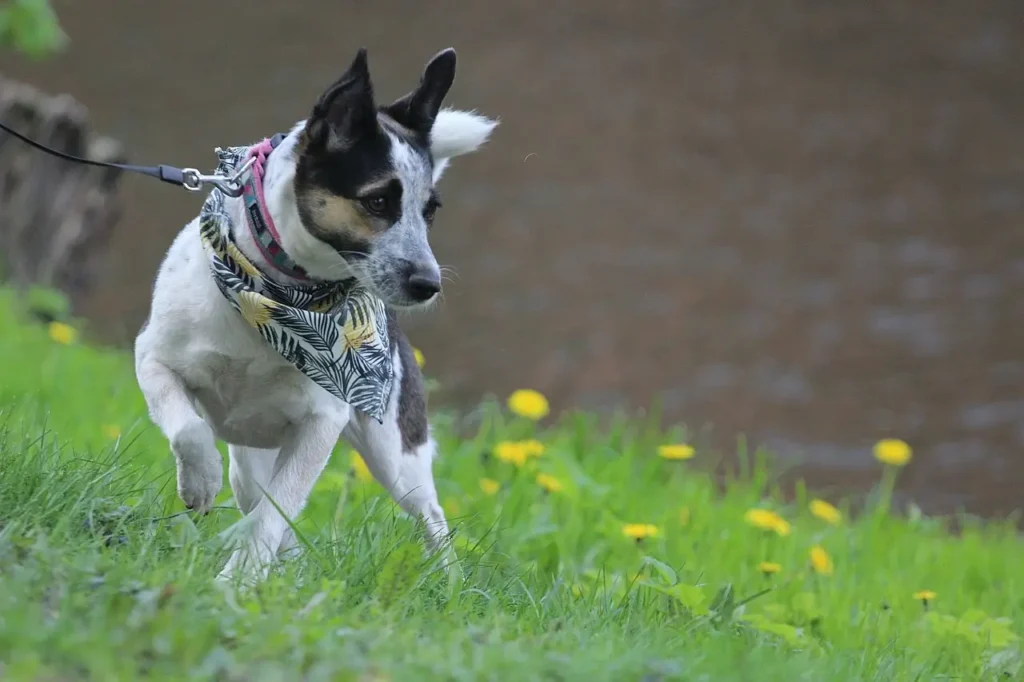Breakfast is the most important meal of the day for humans and our canine companions. Regarding what we serve our dogs in the morning, the options can be as varied as our breakfast spreads. However, it’s not just about feeding them something to fill their tummies; it’s about ensuring they get the proper nutrients safely and enjoyably. This comprehensive guide explores the hows and whys of creating a healthy breakfast for your dog, complete with safety tips, nutritional insights, and a range of delectable recipes.
Why a Balanced Breakfast is Crucial for Canines
Like humans, dogs benefit from a balanced breakfast that sets them up for a day of energy and vitality. Here’s why investing in a proper morning meal is essential:
Nutritional Needs of Dogs in the Morning
In the morning, your dog needs to refuel after the overnight fast, which could be anywhere from 8 to 12 hours. A balanced breakfast should include proteins for muscle health, carbohydrates for energy, and fats for coat and skin health. These essential macronutrients should constitute the bulk of your dog’s morning meal. Additionally, vitamins and minerals are just as crucial for their overall health.
The Role of Breakfast in Canine Health
Skipping breakfast can cause fluctuations in blood sugar levels, leading to lethargy and potentially more severe health issues. A healthy breakfast can also support your dog’s digestive system and help maintain a healthy weight.
Building a Dog-Friendly Breakfast
When constructing your dog’s breakfast, consider their breed, age, and activity level. Highly active dogs, for instance, might need more protein and fat, while senior dogs might need fewer calories overall but a denser nutrient profile in their meals.
Safety Guidelines for Canine Breakfast
Ensuring the safety of the food we serve our dogs is non-negotiable. There are several considerations to keep in mind:
Potential Allergens
Just like humans, dogs can have food allergies. Common allergens include dairy, grains, and specific proteins. Introduce new foods gradually and watch for any signs of adverse reactions.
Toxic Foods for Dogs
Some human foods can be toxic to dogs. Foods like chocolate, onions, grapes, and raisins are harmful and should be avoided.
Food Preparations
Be mindful of food preparation. When feeding meat, ensure it’s thoroughly cooked to kill potential bacteria. Foods prone to spoilage should be refrigerated promptly.
Breakfast Options for Dogs
Turning to store-bought dog food is always an option, but for those looking to add variety to their dog’s diet, here are some safe and enjoyable breakfast options:
Cooked Meats
Lean meats such as chicken, turkey, or beef are excellent protein sources. Remove any bones and cook the meat thoroughly to avoid digestive issues.
Eggs
Eggs are an excellent source of protein and can be a good option for dogs, cooked without any added salt or seasonings. They are also a source of Omega-3 for coat and skin health.
Grains
For dogs that tolerate them well, grains like rice or oats can provide energy through carbohydrates. They are also easy on the stomach and can help with digestive issues.
Fruits and Vegetables
Many dogs enjoy fruits and vegetables, providing valuable vitamins and fiber. Safe choices include apples (without seeds), carrots, and green beans.
Dog-Safe Human Foods
Dog-safe human foods such as yogurt (without artificial sweeteners) and cottage cheese can add variety and extra nutrients to your dog’s breakfast.
Crafting Nutritionally Dense Breakfast Bowls
If you’re inclined towards preparing a custom breakfast for your dog, here’s a roadmap to a nutritionally dense bowl:
A Balanced Plate
A great starting point is the 50-25-25 rule, where 50% of the meal comprises vegetables, 25% is lean protein, and the remaining 25% is grains or legumes.
Essential Supplements
Consider adding supplements, such as fish oil for Omega-3 and glucosamine for joint support, provided they don’t substitute vital nutrients sourced from core foods.
Hydration
Remember to provide water with breakfast, especially if your dog’s meal is dry or doesn’t include fruits with high water content.
Delicious DIY Breakfast Recipes for Dogs
To infuse excitement into your dog’s mornings, here are some tasty and healthy recipes:
Fido’s Frittata
- Two eggs
- A handful of cubed, cooked sweet potato
- A few chopped spinach leaves
- A sprinkle of shredded cheese (if your dog tolerates dairy)
Whisk the eggs and mix in the rest of the ingredients. Pour into a greased baking dish and bake at 350°F until the eggs are set.
PB&J Pup Pancakes
- 1 cup whole-grain flour
- One egg
- 1 cup unsweetened almond milk (check for any additives that may be harmful to dogs)
- A dollop of unsalted peanut butter
- 1/4 cup fresh or frozen blueberries
Mix the flour, egg, and almond milk until smooth. Heat a pan and add a dollop of batter. After a minute, add a dollop of peanut butter and some blueberries. Flip the pancake and cook for another minute.
Canine Chia Pudding
- Two tablespoons of chia seeds
- 1/2 cup unsweetened coconut milk
Mix the chia seeds and coconut milk and refrigerate overnight. Serve in the morning with a sprinkle of unsweetened coconut flakes.
Transitioning to a Custom Breakfast Plan
If your dog has been on a consistent diet and you wish to transition to a custom breakfast plan, take it slow:
Gradual Changes
Start by replacing a small portion of their usual breakfast with the new food, then slowly increase the amount over weeks.
Monitoring Health
Keep a close eye on your dog’s health and behavior during the transition, and be prepared to revert to their old diet if needed.
Consult a Vet
Always consult your vet before significantly changing your dog’s diet, especially if they have health concerns.
Breakfast on the Go: Quick and Nutritious Ideas
For those busy mornings when time is scarce, consider these quick and nutritious ideas:
Scrambled Eggs
A simple and quick source of protein, scrambled eggs need no fancy preparation.
Yogurt Parfait
Layer yogurt with a dollop of peanut butter and a few berries or banana slices for a protein-packed treat.
Oatmeal To-Go
Prepare a batch of plain oatmeal and serve a portion each morning with a different topping, such as shredded chicken or grated carrots.
Conclusion
Breakfast is vital to your dog’s day, and investing in their first meal with care can lead to numerous health benefits. Whether you opt for store-bought dog food, homemade meals, or a combination of both, the key is to ensure balance, safety, and enjoyment. With the knowledge and recipes provided in this guide, you’re now equipped to start your dog’s day on the right paw. Remember, a healthy and happy dog makes for a dynamic and fulfilling relationship, where every breakfast can be an opportunity to cherish your furry friend.
If you want to read more, visit our blog. We’ve got more topics!



